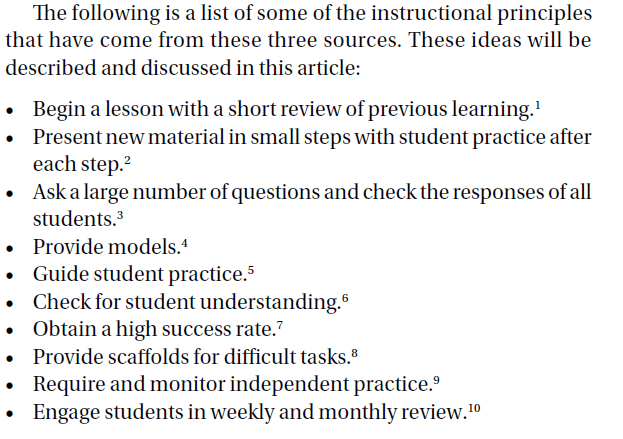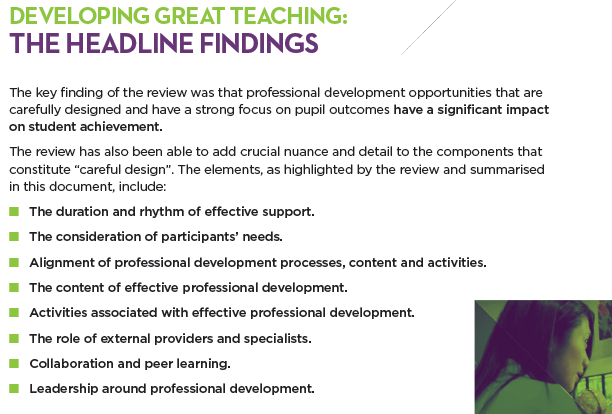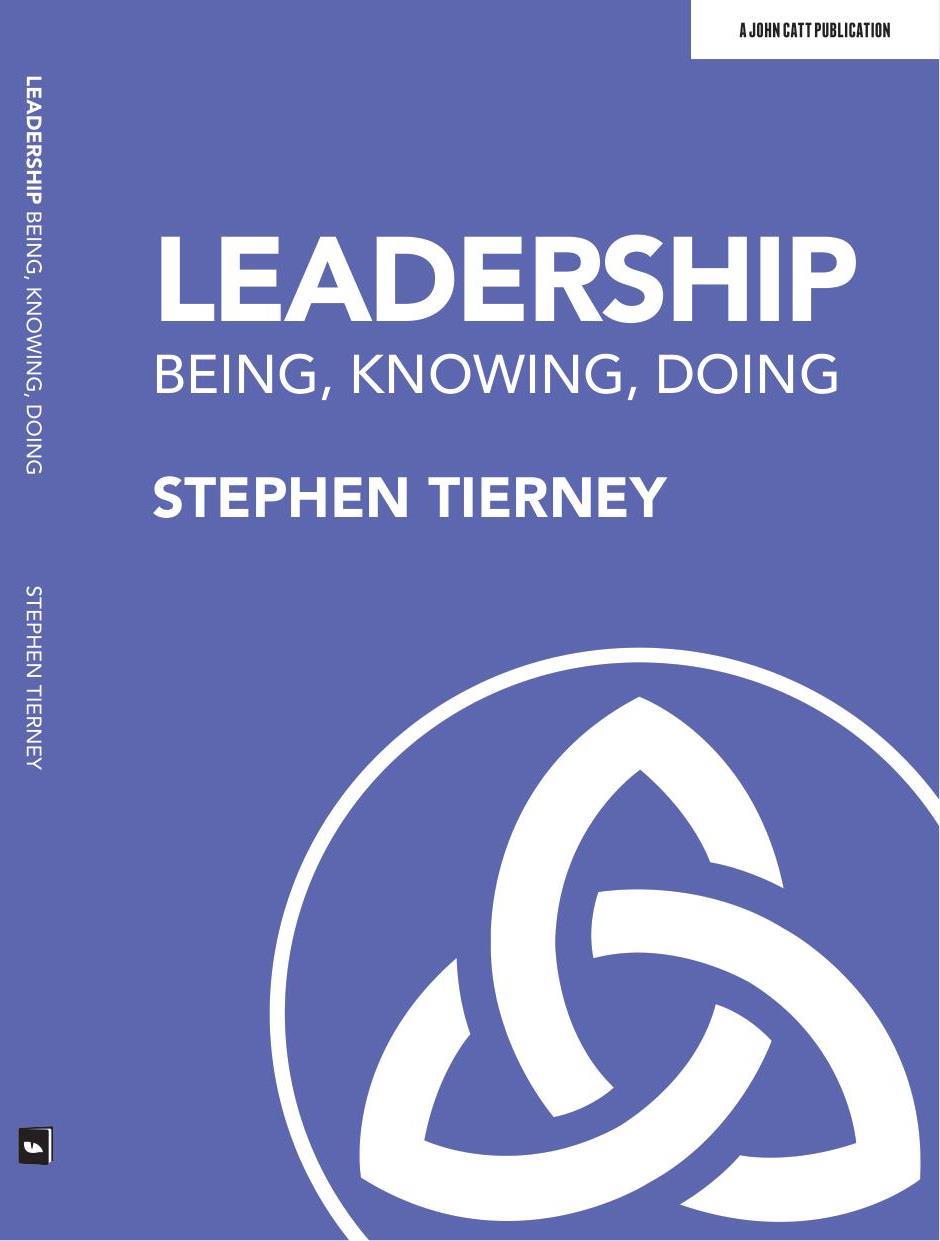The title is a statement; arguably it should be more of a question. These would be the 5 key papers I think all teachers – from ITT to Headteachers – should read. Others may disagree; feel free to suggest alternatives. Having read them there is a a need to discuss with others; collaboratively develop your depth of understanding and then work hard at implementing within the classroom and staff room until they are systemic or fluent.
Some of the papers are pretty lengthy so you may wish to just read one at a time and return to this page for the next one, when you are ready. Evidence doesn’t replace experience; both work alongside each other developing, deepening and enriching each strand of professional life in a symbiotic relationship. There are some things to note about evidence in general including in these papers.
Firstly, none of these papers are particularly new. Teachers may be best working with evidence from researchers that is well established, has stood the test of time and been implemented in various contexts. Working with the latest evidence is fraught with difficulty not least that as soon as you have read one paper about the positive impact of a certain intervention, theory or way of working another paper gives the opposing view. Let the researchers battle it out, produce evidence and counter evidence and argue their way through the fog; wait until there is a clarity and collectiveness of view before engaging. Most teachers are simply too busy to do otherwise.
It’s also worth noting how experts in their field are much happier to embrace uncertainty than Twitter is, Professor Robert Coe, when talking about great teaching, said, “We don’t know as much about it as we’d like to. We get glimpses at the moon through a cloudy sky – snippets that give insight. We try and bind them together, but we have a precarious grasp of something that is very complicated”. Gone is the binary certainty of my Twitter time line and in comes a nuanced deep understanding that we must acknowledge degrees of certainty and uncertainty; it mustn’t paralyse us rather enable us to approach any evidence with an understanding of its limitations.
Final thing before the 5 evidence based papers is the common sense these experts bring to suggestions about implementation. My favourite example is in the Dunlosky et al paper when they comment on highlighting texts as a way of learning; they describe it as low utility. However given the widespread adoption of the process, rather than the Twitter approach of banning it on pain of death, they suggest, “Future research should be aimed at teaching students how to highlight effectively, given that students are likely to continue to use this popular technique despite its relative ineffectiveness.”
The papers themselves could inform a whole series of “evidence based” discussion groups in your school. Read them one at a time; come together and chew over what they mean and the implications for implementing and encourage people to “play” with the ideas before seeking more formal implementation where sensible. It’s often an organic growth thing rather than a full scale imposition; the Trojan Mouse approach has some benefits.
Credit to Mark Esner for setting off this trail of thought; he asked, “Which one paper would you recommend”. Please note all graphics are taken from the associated paper. I couldn’t do just one so here are the five:
What Makes Great Teaching – Review of the Underpinning Research by Coe et al
This would be my starter paper for discussion. It grounds you in what great teaching might be and how teachers can become great or at least much better. It looks at six components of great teaching referencing both Rosenshine & Dunlosky (see below). It needs a whole school focus.

1. What Makes Great Teaching – Coe et al via Sutton Trust
Principles of Instruction – Rosenshine
This was Mark Esner’s suggested paper; I agree, one of the top 5. It’s an interesting and detailed paper. The paper is built around principles rather than specific practices. Each principle has a useful “Research Findings” and “In the Classroom” section. It’s one for classroom practitioners.
2. Principles of Instruction – Rosenshine
Cognitive Load Theory – Sweller
Arguably the most important theory for teachers to know, Dylan Wiliam certainly thinks so. The paper discusses the processing (short term memory) and storage (long term memory) of information. “If memory is the residue of thought” (Willingham) and remembering is a good thing; it is the basis for further learning as well as guiding current actions, then teachers need to take account of how to maximise this in their teaching. There are five recommendations for the classroom which are rooted in cognitive load theory.
3. Cognitive Load Theory – Sweller via CESE
Improving Students’ Learning With Effective Learning Techniques: Promising Directions From Cognitive and Educational Psychology – Dunlosky et al
The paper provides a review of the ten learning techniques; each one is set out using the same format: a description of the technique and why it is expected to improve student learning; an exploration of its “generalizability” in different contexts; links to any research and any identified issues with implementation.
4. Improving Students’ Learning – Dunlosky et al
Developing Great Teaching – Teacher Development Trust
If we want great teaching and learning in the classroom then we need great professional development in the staff room first and foremost. Too much professional development is quite literally a waste of time. Substantial effective professional development of teachers is a precursor of effective implementation and supporter of significant improvements in pupil outcomes. Eight key elements of effective professional development are explained within this paper.
5. Developing Great Teaching – Teacher Development Trust
Five papers can never represent the totality of what is important in the classroom; much of what is above has dealt with the technical. The impact of socio-economic factors, importance of culture and impact of relationships has barely been given a nod. The above has been selected because they are arguably more within our control than many other factors which also impact significantly on the great venture that is education.







Can you include a little more on the evidence supporting the importance of social and emotional learning?
Posted by Ray Harris | May 29, 2018, 11:18 amReblogged this on THE CHA WEEKLY READER and commented:
Having shared a bit of reading at our INSET, I thought this post may be useful to anyone who wanted more of the same. This post presents and links to 5 essential pieces of reading for teachers which you can access for free.
It shouldn’t surprise you to learn that all 5 are available as printed documents from the Teaching and Learning Hub, which you can help yourselves to.
Posted by Adam Porter | July 12, 2018, 12:35 pmThank you for the post, very interesting information.
Posted by Kason Gross | October 6, 2018, 9:51 amThank you for all the amazing articles shown here
Posted by Lauretta Nwaka | March 25, 2020, 8:06 am